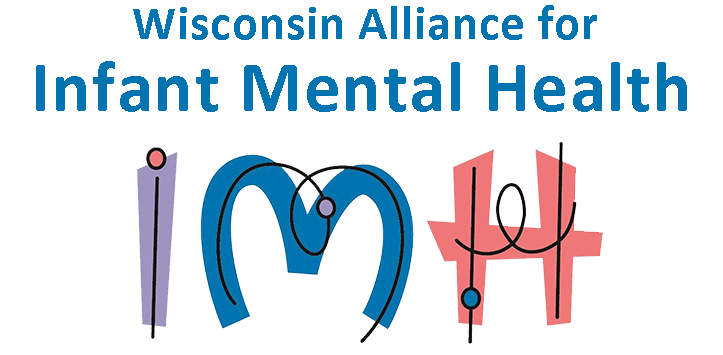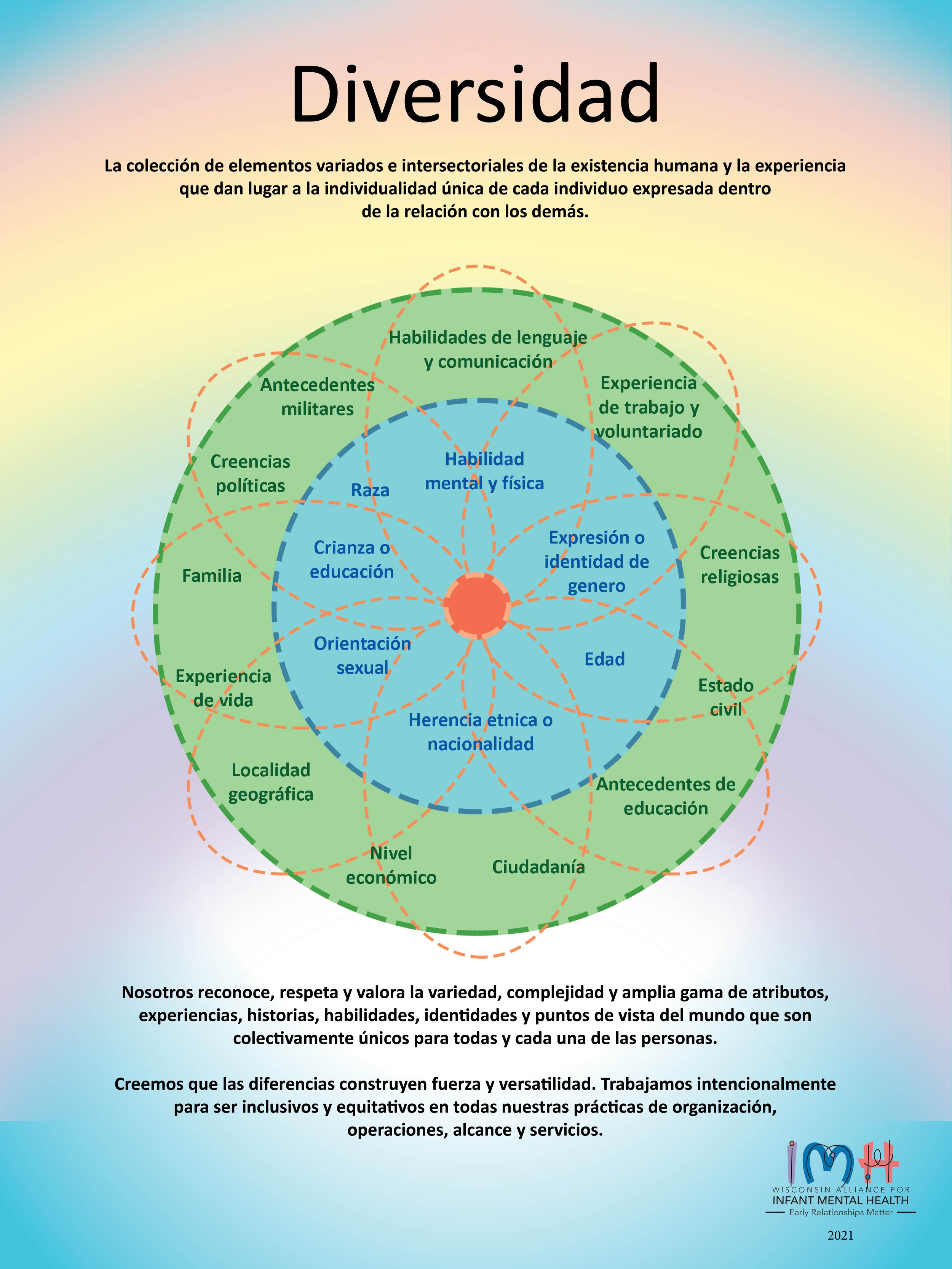Mission:
WI-AIMH strives to promote infant mental health through building awareness, promoting professional capacity, fostering partnerships and supporting policies which are in the best interest of infants, young children and their families.
Vision:
We aim for all Wisconsin infants and young children to reach their fullest potential through nurturing and consistent relationships within the context of family, community, and culture.
Values
Relationships are central to all aspects of our work
Interactions with others are defined by mutual respect and trust
We recognize the issue and impact of systemic racism and we are intentional in taking action to dismantle systemic racism
Open, honest, and bi-directional communication is necessary for the lived experience of our values and the accomplishment of our mission
Our work is driven by collaborative leadership and decisions are made through collective wisdom generated by diverse voices
We are committed to promoting self-reflection to increase awareness of our respective personal roles and responsibilities in systems of oppression, acknowledging privilege, and taking action to combat discrimination and inequities in all forms
Reflective practice is a critical component to enhancing professional capacities, resiliency, and a balanced outlook necessary to respond to the intense, emotionally evocative nature of Infant Mental Health work
Self-care, flexibility and professional development are critical to quality work
We use a strengths-based model to develop and support capacities of individuals, organizations, and systems
We recognize that we cannot be completely objective in our effectiveness of embodying these values in practice and therefore commit to seeking and responding to feedback
Our Strategies Used to Promote Infant Mental Health Include:
Increase public awareness of the influence of early experiences and relationships and impact on development
Develop professional capacities to understand and support infants and young children within their relationships
Foster partnerships, policies and best practices to better support healthy development in infants, young children and their families
Why care about social and emotional development?
The early preschool years are a critical time for skill formation and lay the foundation for future success in school and beyond. Practice-based evidence and scientific research have demonstrated the importance of early experiences as well as the interactions between genetics and environment.
Over the last twenty-five years we have gained a greater understanding about what can hinder and what can promote healthy social and emotional development. Children who are unable to attain early social and emotional milestones do not do well in early school years, and research indicates that children who start behind tend to stay behind. These children are at a higher risk for school problems and juvenile delinquency. Research and experiential knowledge from the field of infant and early childhood mental health confirm that a child’s emotional development forms the foundation for all later development and sets the stage for relationships and readiness to learn. Research also shows that children participating in “enriched early childhood programs are more likely to complete school, and much less likely to require welfare benefits, become teen parents, or participate in criminal activities. Rather, they become productive adults.” (Heckman, James: Ounce of Prevention, 2000, Chicago, Illinois).
Infant Mental Health in Wisconsin
The Wisconsin Alliance for Infant Mental Health (WI-AIMH) is focused on promoting the healthy social and emotional development of all Wisconsin children from birth through age five. The Wisconsin Infant and Early Childhood Mental Health Plan presents a blueprint for a comprehensive system of care that includes prevention, early intervention, and treatment. The goal is not to set up another silo for services, but rather to weave infant and early childhood principles into the fabric of all systems that touch the lives of young children.
The developing infant and early childhood system of care in Wisconsin includes the critical components of public awareness, training, service delivery, and policy. One of our goals is to provide parents and people working with young children and their families (such as child care workers, home visitors, and pediatricians) the knowledge, skills, and practices that support healthy social and emotional development. All people working with young children need to know early warning signs and how to use screening tools. Referral processes need to be developed and streamlined. Finally, the mental health services for young children and their families must be accessible, affordable, and based on models that result in positive outcomes.
Information to share
WI-AIMH definition of diversity:
The collection of varied, intersecting elements of human existence and experience that result in the unique personhood of each individual expressed within relationship to others.
WI-AIMH Diversity Statement
WI-AIMH acknowledges, respects, and values the variety, complexity and wide range of attributes, experiences, histories, abilities, identities and world views that are collectively unique to each and every person. We believe that differences build strength and versatility. We intentionally work to be inclusive and equitable in all of our organizational practices, operations, outreach, and services.
WI-AIMH definición de diversidad:
La colección de elementos variados e intersectoriales de la existencia humana y la experiencia que dan lugar a la individualidad única de cada individuo expresada dentro de la relación con los demás.
WI-AIMH Declaración de diversidad
WI-AIMH reconoce, respeta y valora la variedad, complejidad y amplia gama de atributos, experiencias, historias, habilidades, identidades y puntos de vista del mundo que son colectivamente únicos para todas y cada una de las personas. Creemos que las diferencias construyen fuerza y versatilidad. Trabajamos intencionalmente para ser inclusivos y equitativos en todas nuestras prácticas de organización, operaciones, alcance y servicios.



